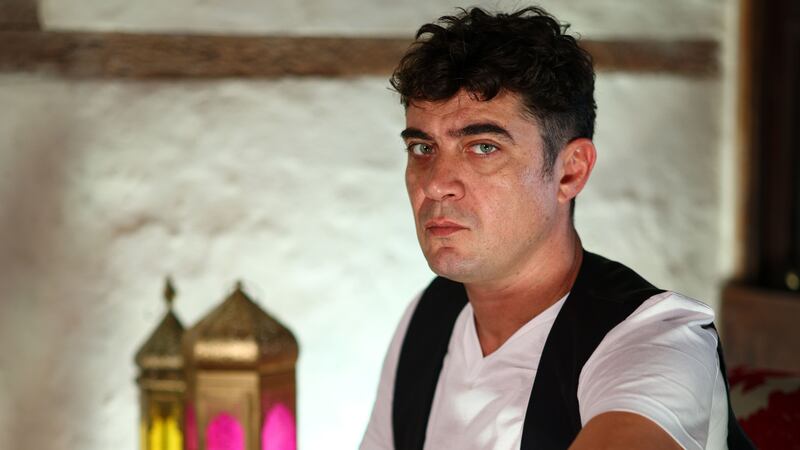We Irish have a penchant for arriving breathlessly about 20 years late to the party and congratulating ourselves on how awfully modern we are.
Our current manifestation of this tendency is that we are having our own end-of-history party when it comes to politics. In 1992, Francis Fukuyama wrote an influential work called The End of History and the Last Man. His thesis was not that we had reached some kind of peak of perfection where nothing of great historical import would ever happen again. His belief was that it was now beyond dispute that there was “an unabashed victory of economic and political liberalism”.
The title of his book was misleading – or at least using development or modernisation rather than history in the title would probably have left Fukuyama less open to misinterpretation.
Although it was rarely found in fully fledged form in any country, on the level of ideas that shape culture and make the world better for humanity, Fukuyama believed there was no competitor to western liberalism.
READ MORE
In the first and influential article Fukuyama wrote in the National Review in 1989, he acknowledged this end-of-history trope was not original and that he had drawn not only on Hegel but on Alexandre Kojève, a brilliant Russian emigre who wrote and lectured extensively in France about Hegel. Kojève’s version of the end of history was what he termed the “universal homogenous state”.
As Fukuyama interpreted Kojève’s idea of the universal homogenous state, “there is no struggle over large issues and, therefore, no need for generals or statesmen – what remains is economic activity”. Fukuyama saw the end of history as a very sad time – daring, courage, imagination and idealism “will be replaced by economic calculation, the endless solving of technical problems, environmental concerns, and the satisfaction of sophisticated consumer demands”.
Fukuyama was best friends with many neoconservatives and an adviser to Ronald Reagan for a while. He has long since left the neo-con camp. While he has maintained as recently as last October in the Atlantic that his main thesis is still sound, he also has published stinging attacks on the failures of liberalism. His most recent book, published last May, is called Liberalism and Its Discontents.
State of self-congratulation
It is in this sense that Ireland has arrived late to the party. It is still at the smug stage of self-congratulation at having arrived at the ideal ideological state.
Our two major political parties are virtually indistinguishable on every large issue. A self-satisfied certainty that all right-thinking people think exactly alike prevails. There are minor differences between Fianna Fáil and Fine Gael but even the most devoted party hack would be hard-pressed to find significant ideological differences.
Politics is now about a kind of technocratic managerialism rather than ideas because the ideas are allegedly settled. While the Greens remain more genuinely passionate about climate change and more willing to take hard decisions to address it than either Fianna Fáil or Fine Gael, it is a matter of degree rather than deep disagreement about the central issue.
Sinn Féin, for all its pretensions to radicalism, is busy showing prospective voters that it belongs at the civilised, middle-class dinner party.
There are positive aspects to the smug consensus. Unlike elsewhere in Europe and despite media attempts to construe a micro-minority as a serious political faction, we do not have widespread anti-immigrant sentiment. By and large, people welcome newcomers.
Affordable homes
We also practise redistribution. The jagged edges of economic inequality are somewhat smoothed out by progressive taxation, albeit imperfectly and with significant gaps in healthcare, for example.
On all these issues there is broad agreement. The only significant difference between the major parties concerns housing. Sinn Féin promises more radical measures that will allegedly give young and not-so-young people access to affordable homes.
Fukuyama may never have meant that history had ended in the sense that major historical events will no longer occur, but we have an Irish twist on that, too.
In Ireland, it is not so much the end of history as that housing trumps history. Older people, who remember women like Jean McConville, a widowed mother of 10 who was shot in the back of the head and “disappeared” by the Provisional IRA, are aghast that young people can consider voting for Sinn Féin.
Gerry Adams has always strenuously denied ordering McConville’s murder and Mary Lou McDonald recently extended her sympathy, heartfelt sorrow and apology to those who were harmed by republicans.
Older people are not buying it. It’s not that younger people necessarily do, it’s that for many it’s beside the point. They see no prospect of the other major parties giving them a chance at stable housing, much less owning a home. They’re not sure that Sinn Féin will do any better, but they’re increasingly and understandably desperate.
A Sinn Féin that successfully joined the Irish establishment while making real progress on the housing crisis would probably keep the end-of-history party going another decade.
But if Sinn Féin becomes the majority party and fails as conspicuously as the rest, we may get to the discontents of liberalism rather more rapidly than seems currently likely.















